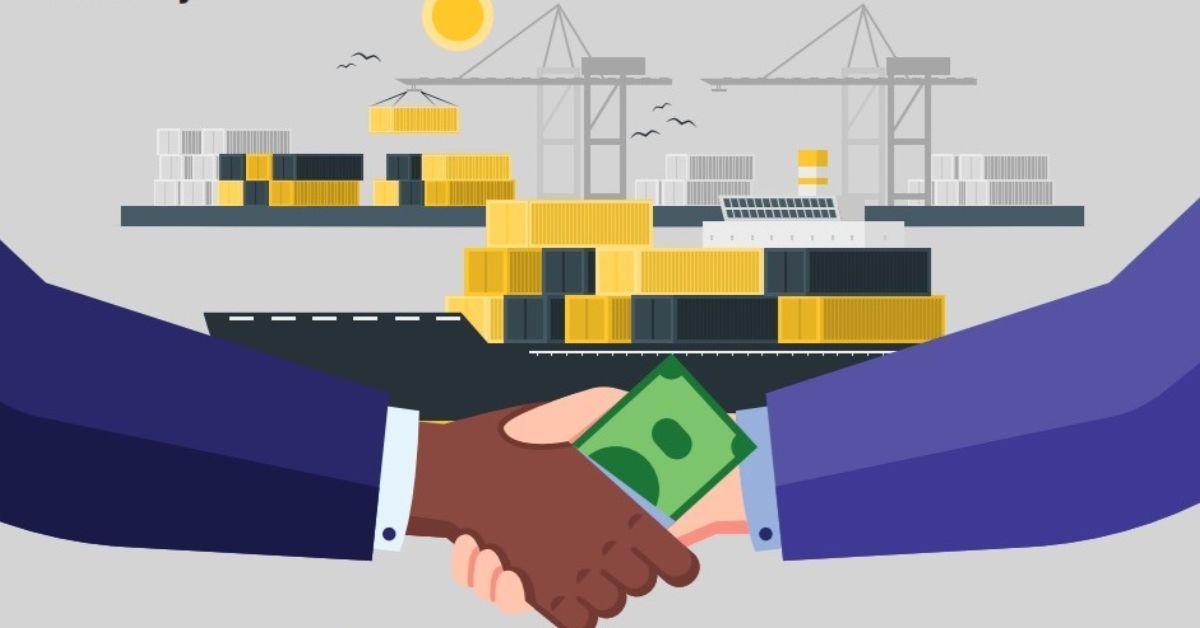The scale of corruption in maritime trade
The maritime industry, often hailed as the backbone of global trade, is grappling with deep-rooted corruption that continues to cost billions of dollars annually on a global scale. In India alone, an estimated Rs 850 crore (approximately $100 million) is lost each year to illicit payments at Ports, a statistic that underscores the urgent need for systemic reform. This corruption manifests in many forms— from facilitation payments made by shipping companies to expedite cargo clearance, to large-scale bid rigging in shipping contracts that unfairly favours certain operators, undermining healthy competition and economic growth.
Corruption in maritime trade is not merely an economic issue; it is intricately linked with broader security concerns. Bribery and fraudulent documentation allow for smuggling and illicit trade, including the illegal movement of drugs, weapons and counterfeit goods. Such activities not only erode government revenue but also compromise national security and the integrity of international trade systems. In regions where weak enforcement and opacity in operational procedures prevail, these corrupt practices become deeply entrenched, making reform both challenging and essential.
Efforts to combat corruption
One organization that has taken centre stage in the fight against maritime corruption is the Maritime Anti-Corruption Network (MACN). Operating as a global initiative, MACN has particularly made a significant impact in India’s maritime sector. According to recent reports, MACN has successfully resolved 41 corruption cases in India with a 100 per cent success rate, thereby saving the industry an estimated $6 million. These achievements are bolstered by the implementation of electronic Port Clearance Systems, which have drastically reduced bureaucratic delays and minimized opportunities for bribery. Furthermore, MACN’s establishment of an anonymous whistleblower mechanism has empowered seafarers and Port workers to report corrupt practices without fear of retribution—a critical step in fostering a culture of accountability.
Key challenges in tackling maritime corruption
The road to eliminating corruption in the maritime sector, however, is fraught with challenges. Despite the existence of robust anti-corruption laws, weak enforcement mechanisms and lack of transparency often allow fraudulent practices to continue unchecked. Port operations, in particular, suffer from an excessive reliance on manual processes that are susceptible to manipulation. In many instances, Port officials and Customs officers engage in facilitation payments to expedite cargo processing, a practice that inflates operational costs and undermines the fairness of market competition. This systemic inefficiency not only stifles growth but also deters foreign direct investment, further impacting the broader economy.
Policy reforms and technological solutions
Addressing these multifaceted challenges requires a comprehensive, multi-pronged strategy. Strengthening governance and transparency is paramount. Governments need to enforce stringent anti-corruption measures and conduct independent audits of Port operations to ensure accountability. Establishing clear public procurement policies and imposing severe penalties for violations can serve as effective deterrents against corrupt practices. Additionally, digitalization of Port procedures—through Electronic Clearance Systems and Blockchain technology—can significantly reduce human intervention, thereby curtailing opportunities for bribery. Ai-driven risk assessment tools, for example, can flag suspicious transactions in real time, allowing authorities to intervene before fraudulent activities escalate.
South Asia: A region-wide problem requiring cooperation
Regional and international cooperation is also essential in combating maritime corruption. In South Asia, corruption transcends national borders, affecting not just India but also neighbouring countries like Sri Lanka, Bangladesh and Pakistan. Cross-border collaborations and intelligence sharing are critical to dismantling corruption networks that operate across these countries. Global agencies such as the United Nations Office on Drugs and Crime (UNODC) have the expertise and resources to help regional governments adopt best practices and coordinate efforts against corruption. Such international cooperation can help align regional strategies with global standards, thereby enhancing the overall integrity of the maritime industry.
Private sector and industry engagement
The private sector has a crucial role to play as well. Shipping companies and Port operators must adopt zero tolerance policies towards bribery and corruption, creating an environment where ethical business practices are the norm. Mandatory anti-corruption training for Port and shipping personnel, coupled with increased participation in networks like MACN, can raise industry standards and foster greater accountability. Private sector engagement is vital in creating an industry-wide culture of integrity, which in turn encourages more companies to report corrupt practices through anonymous channels and whistleblower programs.
Public awareness & whistleblower protection
Public awareness is another critical component in the fight against maritime corruption. Many maritime workers remain unaware of their rights or the mechanisms available to report corruption. Targeted awareness campaigns can educate these individuals on both their responsibilities and the importance of maintaining ethical standards in their work. Moreover, providing robust legal protection for whistleblowers is essential. When workers are confident that their identities will be safeguarded, they are more likely to come forward, providing valuable intelligence that can help authorities identify and prosecute corrupt practices effectively.
Stakes too high for inaction Looking ahead, India’s Maritime Vision 2030 encapsulates the country’s ambition to transform its maritime sector into a model of transparency, efficiency and global competitiveness. Central to this vision is the elimination of corruption, ensuring that trade flows unimpeded and that the country can fully capitalize on its strategic maritime advantages. The successes of organizations like MACN highlight that, with sustained commitment and coordinated action, it is indeed possible to eradicate corruption from one of the world’s most critical economic sectors. The journey towards a corruption-free maritime industry is complex, but the stakes are too high for inaction. Every day, billions of dollars are lost, and national security is compromised due to corrupt practices that undermine not only the economy but also the integrity of global trade. With India and South Asia poised to become even more significant players in the global maritime arena, addressing these challenges has never been more urgent.






